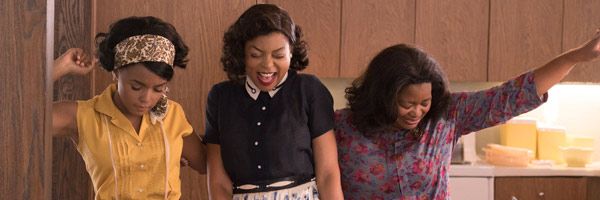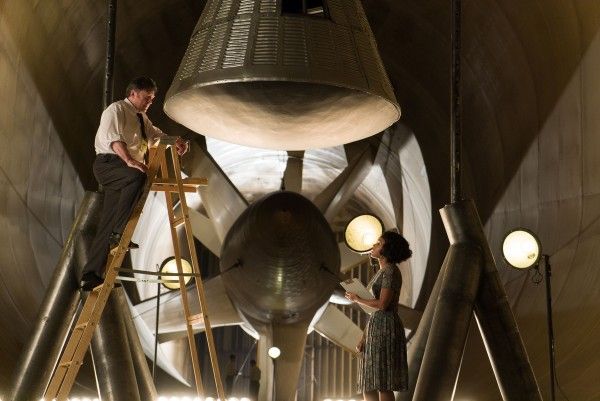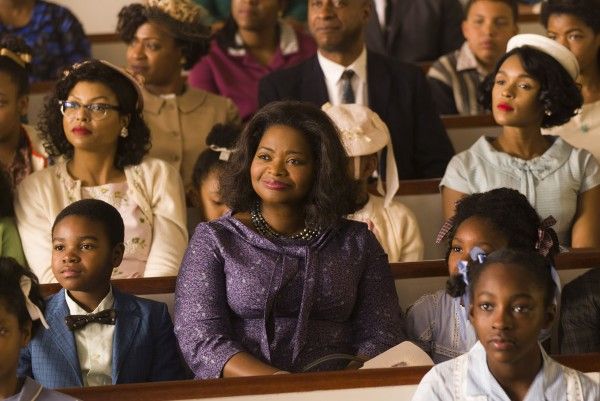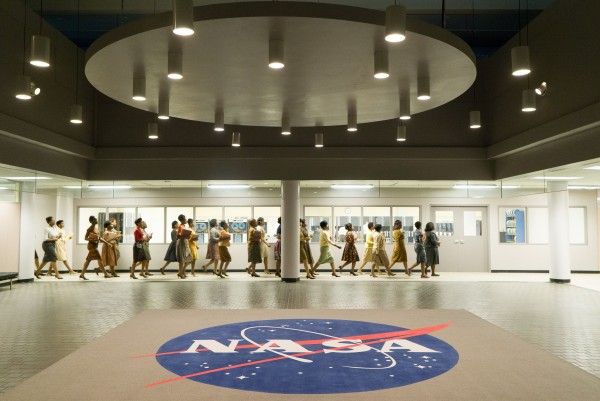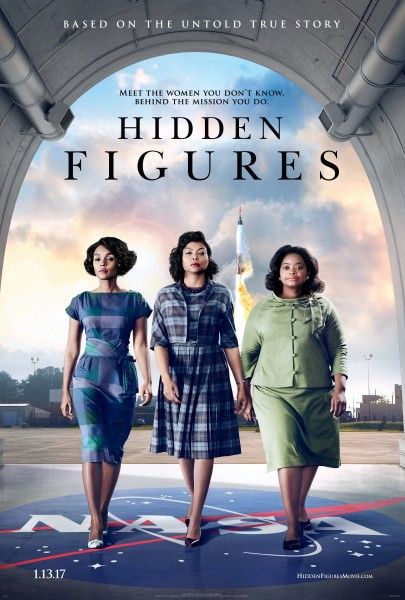[Hidden Figures opens in wide release on Friday.]
If Hidden Figures had been released a decade ago, it would probably be labeled a “nice movie” and we would all move on. But when we live in the time where we’re forced to recognize the necessity and urgency of the Black Lives Matter movement and Nazis have the ear of the future President, Hidden Figures’ talent for informing and uplifting its audience feels essential. While it may lack the aggressive artistry of this year’s Oscar fare, few movies have felt as rewarding as Theodore Melfi’s drama about three African-American women who made essential contributions to the U.S. space race. Anchored by three tremendous performances from its leading actresses, Hidden Figures is a movie that isn’t just worth seeing; it demands to be seen.
Set in the early days of the space race, the story, which is based on true events, follows NASA employees Katherine Johnson (Taraji P. Henson), Dorothy Vaughan (Octavia Spencer), and Mary Jackson (Janelle Monae). Johnson is a brilliant mathematician, Vaughan is a supervisor over the African-American computers (the brilliant women who worked on calculations), and Jackson is an aspiring engineer. With Russia having recently sent Yuri Gagarin up into orbit, the U.S. is struggling to catch up, but with the efforts of Johnson, Vaughan, and Jackson, the program is able to advance. However, even at the cutting edge of scientific progress, these three women must face the hardships of discrimination as they deal with institutionalized segregation.
One of the remarkable things about Hidden Figures is how it shows that there’s not necessarily one “solution” to the problem of institutionalized racism. The outcome is usually that these amazing women have to work twice as hard to do the things that their white peers achieve without a second thought. When Jackson is denied the opportunity to be an engineer because they keep moving to goalposts on the necessary degrees, she has to take her case to court and play to the judge’s ego just so she can take the required night classes to get her degree. When NASA brings in IBM computers and Vaughn can see that her job and the jobs of her computers are living on borrowed time, she makes sure that she and her computers learn how to program the IBM.
The movie also shows how the hatefulness of discrimination doesn’t just hurt individuals; it hurts human progress. Whenever Johnson needs to take a bathroom break, she has to walk a half-mile just to reach a “coloreds only” lavatory. Eventually, her supervisor, Al Harrison (Kevin Costner), wants to know where she’s going every day and she angrily explains her predicament. Chastened, Harrison eventually takes a crowbar to the “whites only” lavatory sign in his building. It’s a corny moment, and one that plays up the charity of the enlightened white man, but thankfully moments like these a few and far between. Hidden Figures keeps its eye largely on Johnson, Vaughn, and Jackson, and it’s to the film’s great benefit because of the point it’s making with regards to racism.
Some may feel that there are too many montages of Johnson making her daily excursion to the restroom, but Melfi is showing it because we’re forced to realize how much time she’s spending just to obey a dumb, awful law. What’s being said without any character having to say it is that Johnson could have spent so much more time working on her calculations and helping America if America wasn’t busy screwing her over. It’s a special kind of selflessness to work your ass off to help a country that is bent on keeping you down. And then, we can expand that to see how by short-changing not only Johnson but also Vaughn, Jackson, and countless other minorities, we’re only hurting our country. Hate can only send us backwards.
This message may play a little heavy handed or even like an afterschool special if not for the Oscar-caliber performances of Henson, Spencer, and Monae. I’ve been a huge fan of Henson’s work ever since the criminally under-seen Talk to Me, and while she’s finally receiving the acclaim she’s long deserved thanks to her work on Empire, she’s also excellent as Johnson. She plays the character’s shyness and tenacity to powerful effect, and gives a human, heroic performance that never falls into hagiography. Spencer delivers the same level of gravitas we’ve come to expect from her, and provides a reminder why she’s an Oscar-winner. And as for Monae, this is a breakthrough performance of the highest order. She plays Jackson with commanding verve and confidence. If Hidden Figures is a success, then Monae should be on the A-list.
I imagine some will dismiss Hidden Figures as soft-serve drama, and there are times (like the aforementioned scene of Costner knocking down the segregated bathroom sign) where it can be heavy-handed, but Melfi never loses sight of the real reason this film will make you angry and make you cheer. It’s not a film where people casually throw out the n-word or racism is something that’s long since past. Hidden Figures may not be a groundbreaking film, but it’s one we need right now.
Rating: B+

